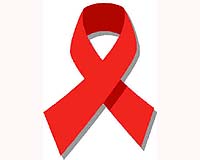| . |  |
. |
London (AFP) July 2, 2009 Britain's health secretary warned Thursday the country could soon face more than 100,000 daily cases of swine flu, while fears linked to the virus soared in Argentina after the death toll nearly doubled. The warning from British Health Secretary Andy Burnham came as a second case of resistance to the key Tamiflu drug in a swine flu patient emerged in less than a week, with the latest in Japan. The A(H1N1) virus has also now spread to all 27 countries in the European Union, with Malta reporting its first two cases. Burnham said 100,000 cases a day could occur in Britain by the end of August if the current rate of infection is maintained. Britain already has Europe's highest number of reported cases. "Cases are doubling every week, and on this trend we could see over 100,000 cases a day by the end of August, but I stress this is only a projection," Burnham told the House of Commons, the lower parliamentary chamber. Britain now had nearly 7,500 cases of swine flu, he said, with hundreds of new cases being confirmed every day. Health officials have said Britain is abandoning a policy of trying to stop the flu spreading and instead focusing on patients most susceptible to it, such as obese people or those suffering from asthma or breathing problems. All three people who have died in Britain after contracting swine flu had underlying health problems, health officials have said. The latest numbers from the World Health Organisation, released on Wednesday, showed 77,201 reported swine flu cases worldwide, with 332 deaths. On Thursday, Japan's health ministry reported resistance to Tamiflu in a patient with swine flu, the second in a week after a previous case in Denmark. The patient -- a woman in Osaka prefecture -- was recovering after having been given Ralenza, an alternative anti-flu medication, Kyodo news agency reported, citing the Health, Welfare and Labour Ministry. A spokeswoman for Swiss pharmaceuticals giant Roche, which makes Tamiflu, said the company had been informed of the case and called it "normal," adding that "0.4 percent of adults develop resistance" to Tamiflu. This case did not indicate Tamiflu has become less effective against swine flu, she added. Separately, the US health department said it would provide 420,000 courses of Tamiflu to fight swine flu in Latin America and the Caribbean. Argentina has surpassed Canada as the country with the most swine flu-linked deaths after the United States and Mexico, and the government there has come under fire for its response to the pandemic. Swine flu fears in Argentina have been aggravated by the government's refusal to declare a state of emergency even as the death toll has nearly increased from 26 to at least 43. New Health Minister Juan Manzur avoided precise numbers at his first press conference Wednesday, finally settling on "between 43 and 44" as the number of deaths. The virus spread in Argentina at a time when the government and public were distracted by a campaign for mid-term legislative elections held Sunday. But fears over flu have increased since the weekend, as public and media attention has shifted from politics to the mounting number of deaths and infections. On Monday, pharmacies in Argentina ran out of masks, as advice about how to avoid the flu replaced the drama of President Cristina Kirchner's electoral defeat as the top topic of conversation. In Australia, authorities said Thursday parents should not panic after the death of a three-year-old with swine flu -- its first child death linked to the virus. Health Minister Nicola Roxon called the death a "tragedy," but emphasised the virus was mild in most cases. Meanwhile, the UN World Tourism Organisation has revised its 2009 global tourism forecast sharply down because of the worsening economic outlook and uncertainty over swine flu. The body forecast that international tourism would decrease between four and six percent this year. burs-mjs/jj Share This Article With Planet Earth
Related Links Epidemics on Earth - Bird Flu, HIV/AIDS, Ebola
 Economic crisis a 'major threat' to AIDS fight in Africa: UN
Economic crisis a 'major threat' to AIDS fight in Africa: UNSirte, Libya (AFP) July 2, 2009 The global economic crisis poses a "major threat" to the fight against AIDS in Africa as funding for treatment programmes dries up, a top UN official said Thursday. Michel Sidibe, the head of the UNAIDS agency, told reporters on the sidelines of an African Union summit in Libya that 96 percent of Africans receiving AIDS medications depend on aid from rich countries. "The global economic ... read more |
|
| The content herein, unless otherwise known to be public domain, are Copyright 1995-2009 - SpaceDaily. AFP and UPI Wire Stories are copyright Agence France-Presse and United Press International. ESA Portal Reports are copyright European Space Agency. All NASA sourced material is public domain. Additional copyrights may apply in whole or part to other bona fide parties. Advertising does not imply endorsement,agreement or approval of any opinions, statements or information provided by SpaceDaily on any Web page published or hosted by SpaceDaily. Privacy Statement |